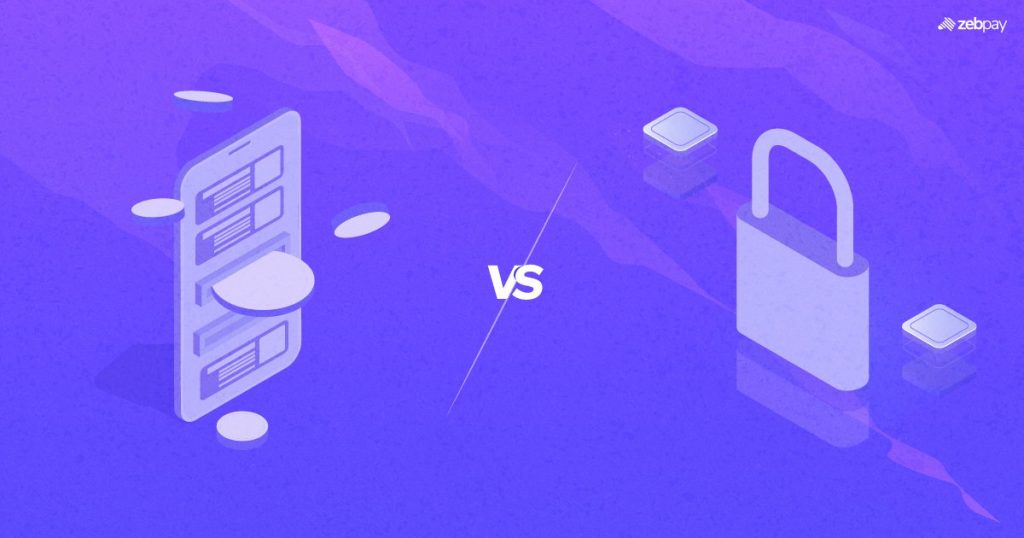In today’s world, data is everywhere. Businesses and websites everywhere run on data. When this data is so important that it drives the world, it must be protected. This is where the question of tokenization vs encryption comes in. Until now, encryption has been considered the standard in data security. However, tokenization is gaining prominence as a strong competitor that can shake up the industry.
Tokenization: What Is It?
Tokenization is a method of data security that creates a placeholder – or “token” – for identifying information. This may be a personal account number, Payment card information or other personal information. When data is tokenized, then each piece of information has a randomly generated token attached to it.
Read About: Tokens vs Coins
A token is nothing but a random string of data that points back to valuable information.
This token is then stored with the business, while the original data remains in another location. Storage of original data is usually in the cloud or any other physically separate location. Therefore, while a token may be in the internal system of a business, the data is not.
How Do Tokens Work?
To understand how tokenization works, we can look at the process of online payments. If you want to make a payment to any website, it will redirect you to your bank. When you enter your card details on the bank’s website, the bank generates a random number and verifies the transaction.
This random number is a token sent to the website you want to buy from. The website then saves this token for future use, making sure future payments are seamless. This process is repeated for every website you wish to buy from. Thus, each token is unique to one business but works without revealing your credit card number.
Why Is Tokenization a Good Choice?
Since tokens are randomly generated, they have no connection to the original data. So, even if someone has your token, they cannot “reverse” a token to find the data it protects. This makes the system incredibly safe and makes data theft almost impossible.
Additionally, the token does not alter data in any way. It exists separately from the original information. Thus, data can still be studied and analysed while being completely secure. Finally, if one business with access to your token has a data breach, that token can be easily disabled. This will not have any effect on the tokens stored with other businesses, or your bank information.
Read About: Why should Businesses Consider Crypto?
Encryption: The Old Standard
So what is encryption? Encryption is the process of converting sensitive data into an unreadable format. Using mathematical algorithms, information in regular text is changed to something known as ciphertext. Encryption is followed by decryption, which reverses it back to its original form.
Encryption is different from tokenization in two main ways. Firstly, tokenization creates a separate point of data while maintaining the original data. Encryption, on the other hand, alters the original data through mathematical algorithms. This means that tokens preserve original data in its true form.
Secondly, encryption is decipherable. Since encryption is based on maths, deciphering it is simply a matter of finding the algorithm used to encrypt it. This means that – in theory – encrypted data can return to its original form. Tokenization is irreversible. Since the token is unrelated to the original data, it cannot “return” to the original data.
How Does Encryption Work?
There are two main systems of encryption, based on the kinds of keys (or code) used:
- Symmetric Key Encryption – This form of encryption uses the same key for encryption and decryption. This means that both the sender and the receiver must have the same key. This is usually a faster means of encryption. The most well-known symmetric key encryption is the Advanced Encryption Standard (AES).
- Asymmetric Key Encryption – This is the form of encryption most commonly used on a blockchain. Public-key encryption is another name for asymmetric encryption. This form uses two different keys that are linked together. The public key is for encryption, while the private key is for decryption. This is a safer, but slower form of encryption than symmetric keys.
Benefits of Encryption
Encryption is a quick and easy way to secure data meant to be shared with select parties. The receiver of data only needs a small key to decrypt it, making it simpler to share. Additionally, since encryption alters the original data, it takes less storage space than tokenization. Tokenization requires storing original data, tokens and how they map to each other.
The Verdict
Both tokenization and encryption offer important advantages for protecting data. Encryption is a lightweight and easy means of securing data, but it can be deciphered based on algorithms. Tokenization is harder to implement and requires more storage but offers security greater than encryption. Either tool may be utilised, depending on the demands of the organisation or the type of data.
Looking to invest in top crypto assets? Click here to buy them on ZebPay crypto exchange.





